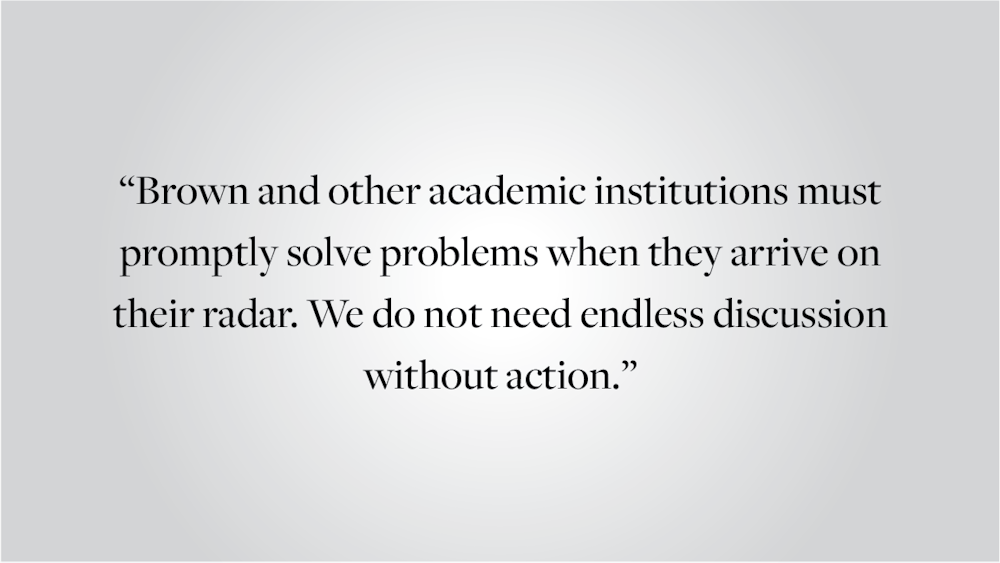Universities spend years going around in circles discussing issues rather than actually implementing simple changes that could have profound impacts on graduate student life. Despite myself and other doctoral students raising concerns about the quality of our education and lives, the University does not seem interested in addressing these long-standing issues with sufficiently expedient action.
Brown has been conducting doctoral student experience surveys since 2013 to help them “better understand the graduate student experience and discover areas for improvement.” In 2021, among the most common concerns were unclear expectations from advisors for academic progress and lack of support for professional development by advisors. And while yearly data on satisfaction rates in the aforementioned categories is unavailable, the percentage of survey respondents who rated quality of academic advising and guidance as “Very Good” or “Excellent” has not meaningfully improved over the past five years. It’s no wonder that one of the most frequent complaints in the survey was a lack of responsiveness to student concerns.
This lack of progress is unsurprising given that Brown has chosen to focus on addressing other issues, such as building a study center for graduate students, increasing the frequency of the survey and renovating a lounge. These changes, while welcome, do not address many of the most pressing concerns graduate students indicated in the survey.
Recently, Brown started a task force on doctoral education, aiming to promote outstanding education and prepare graduate students for their desired career outcomes. While this seems promising at face value, a closer look at the website reveals it is scant on concrete details, full of academic buzzwords and contradictory in key places. While the website says the task force will implement “best practices in graduate advising” and build on the “graduate school’s expanded support for the ‘whole student,’” the student experience “will not be a central consideration for the task force.” How can a task force support graduate students without prioritizing their experiences?
And if it wasn’t already clear that graduate student voices are not central to the endless discussions about graduate education, the carefully crafted task force consists of 12 faculty members and five administrators, but only three doctoral students, none of which are from the physical sciences division. It seems obvious that in a room with 17 staff and only three PhD students — the very group for whom the task force was designed — PhD students will be outnumbered and will likely have little sway in decision-making that impacts their education.
Brown and other academic institutions must promptly solve problems when they arrive on their radar. We do not need endless discussion without action. We do not need to be told that change takes time when the changes we ask for have clear solutions. Advisors should be trained to offer personalized career support. At the beginning of the program, principal investigators should clearly and explicitly explain what is expected from students. They should also be held accountable for any aggressive behavior, such as verbal harassment hurled at student lab workers. And when students bring up concerns in departmental meetings, concrete steps should be taken by action-oriented faculty and staff. These are not superfluous demands — these are the basics and they need to be addressed with more than task forces, advisory committees and additional surveys.
Selahaddin Gumus GS can be reached at selahaddin_gumus@brown.edu. Please send responses to this opinion to letters@browndailyherald.com and op-eds to opinions@browndailyherald.com.





